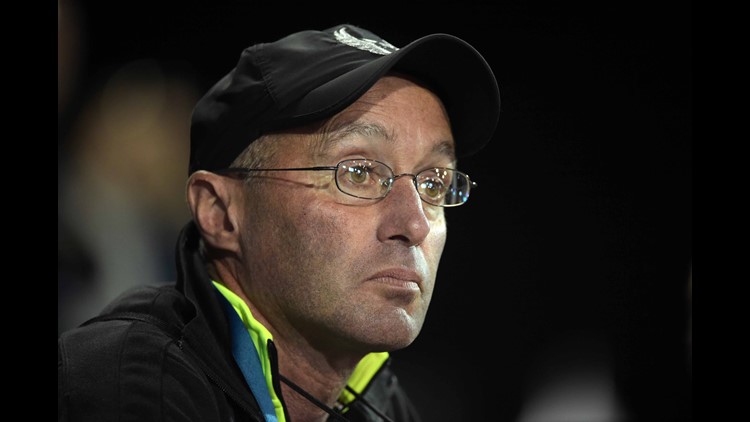![Salazar, Rupp named in doping investigation[ID=28443571] ID=28443571](http://kgw-download.edgesuite.net/video/28443571/28443571_Still.jpg) Nike Oregon Project coach Alberto Salazar has been accused of violating doping rules, including their use in 2002 by Central Catholic High and Oregon runner Galen Rupp, according to reports by the BBC and investigative journalists with ProPublica.
Nike Oregon Project coach Alberto Salazar has been accused of violating doping rules, including their use in 2002 by Central Catholic High and Oregon runner Galen Rupp, according to reports by the BBC and investigative journalists with ProPublica.
In a statement to The Guardian, Salazar said he denied the allegations.
"I have said all along that I believe in a clean sport, hard work and I deny all allegations of doping," Salazar told The Guardian. "The BBC and ProPublica have engaged in inaccurate and unfounded journalism, with a complete lack of regard for both Galen and Mo [Farah]."
"Given the time and effort the BBC and ProPublica committed to making these false allegations I hope that media and fans will afford me a short time to show the accusers are knowingly making false statements. I will document and present the facts as quickly as I can so that Galen and Mo can focus on doing what they love and have worked so hard to achieve."
Rupp also denied wrongdoing.
"I have not taken any banned substances and Alberto has never suggested that I take a banned substance," Rupp told the BBC in a statement.
Rupp has never failed a drug test. Salazar told the BBC and ProPublica that he strictly follows all doping rules.
"No athlete within the Oregon Project uses a medication against the spirit of the sport we love," Salazar told journalists.
An Oregon NCAA cross-country champion, Salazar won the New York Marathon three consecutive years. He famously won a Boston Marathon race, collapsing at the finish and requiring six liters of fluid to recover at a hospital
He heads the Nike Oregon Project, which nurtures Olympic-caliber athletes to train under him. They include Rupp, who won silver at the London Olympics, and Farah, who beat Rupp for gold in the 10,000 meters.
Several athletes have come forward detailing the use of illegal substances pushed by Salazar.
They include distance runner Kara Goucher, the nation's most prominent female runner, who said she left the Oregon Project in 2011 after seven years.
The whistleblowers allege that Salazar experimented with doping aids such as testosterone or gave athletes drugs they didn't need or were not prescribed.
"He is sort of a win-at-all-costs person and it's hurting the sport," Goucher told ProPublica.
Goucher joined six other athletes who spoke privately with the U.S Anti-Doping Agency, which declined to comment on the status of any investigations or acknowledging conversations, ProPublica reported.



